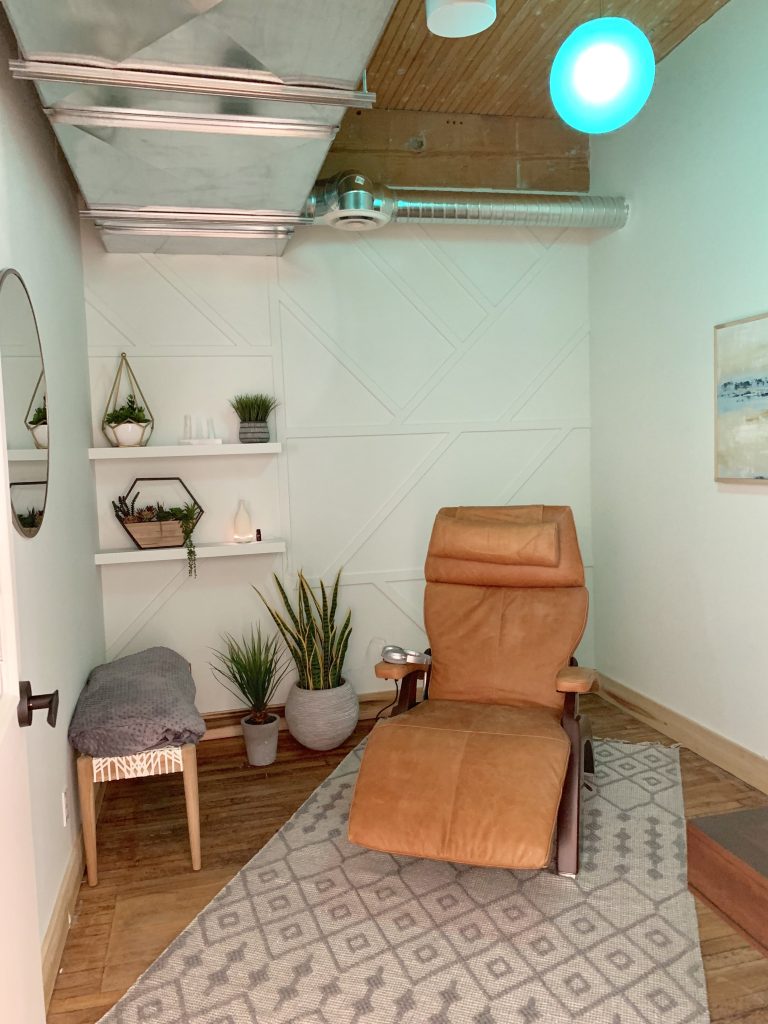
Psychedelic therapy for bipolar disorder is a topic that’s close to my heart as a family physician. In my over fourteen years in medicine, I’ve witnessed the profound impact of mood disorders on people. Bipolar disorders, affecting approximately 2.1% of adults in Canada (according to Statistics Canada), can be particularly challenging to manage. Its complex nature, characterized by alternating periods of mania and depression, often leaves patients with bipolar disorder and healthcare providers searching for more effective treatment options.
My goal is to provide you with a clear understanding of psychedelic therapy for bipolar disorder and its place in the evolving field of mental health treatment for mood disorders.
What is Bipolar Disorder?
In my experience, I’ve come to understand bipolar disorder as a complex and often misunderstood condition. It’s more than just mood swings – it’s a serious mental health disorder that can significantly impact a person’s life.
Definition and Types of Bipolar Disorders
Bipolar disorder is characterized by extreme shifts in mood, energy, and activity levels. These shifts can be so intense that they affect a person’s ability to carry out day-to-day tasks. It’s not just feeling “up” or “down” – it’s experiencing these states to an extreme degree. According to Diagnostic and Statistical Manual of Mental Disorders, 5th edition (DSM-5) these are the various subtypes of Bipolar Disorder (BD):
- Bipolar I Disorder: This is the most severe form of the condition. To be diagnosed with Bipolar I, a person must have experienced at least one manic episode in their lifetime.
- Manic episodes: These last at least 7 days and are characterized by an abnormally elevated mood, increased energy, decreased need for sleep, and potentially dangerous behavior. In severe cases, psychosis may occur.
- Depressive episodes: While not required for diagnosis, most people with Bipolar I also experience major depressive episodes lasting at least 2 weeks.
- Mixed episodes: Some individuals experience symptoms of both mania and depression simultaneously.
- Bipolar II Disorder: This type involves a pattern of depressive episodes and hypomanic episodes, but not the full-blown manic episodes seen in Bipolar I.
- Hypomanic episodes: These are less severe than full mania, lasting at least 4 days. People may feel more energetic and productive, but the symptoms don’t significantly impair functioning or require hospitalization.
- Depressive episodes: These are typically more frequent and longer-lasting in Bipolar II compared to Bipolar I.
- Cyclothymic Disorder: This is a milder form of bipolar disorder, but it can be just as distressing and disruptive.
- Symptoms: Numerous periods of hypomanic and depressive symptoms lasting for at least 2 years (1 year in children and adolescents).
- Intensity: The symptoms don’t meet the full criteria for hypomanic or depressive episodes.
- Persistence: During the 2-year period, the symptoms must be present for at least half the time and never absent for more than 2 months.
- Other Specified and Unspecified Bipolar and Related Disorders: This category includes bipolar disorder symptoms that don’t match the three main subtypes.
- Examples include short-duration hypomanic episodes (less than 4 days) and a major depressive episode, or hypomanic episodes with insufficient manic symptoms and a major depressive episode.
Symptoms of Bipolar Disorder
Bipolar disorder is characterized by dramatic shifts in mood, energy, and behavior. These shifts occur between two primary states: the high state (mania or hypomania) and the low state (depression).
This table provides a comparison of the symptoms experienced during the high and low states of bipolar disorder, highlighting the dramatic shifts in mood, energy, and behavior characteristic of the condition.
| Aspect | High State (Mania or Hypomania) | Low State (Depression) |
| Mood | Elevated, elated, euphoric | Persistent sad or empty mood |
| Energy | Increased energy and activity | Fatigue and loss of energy |
| Sleep | Decreased need for sleep | Sleep disturbances (insomnia or hypersomnia) |
| Thoughts | Racing thoughts | Difficulty concentrating or making decisions |
| Speech | Rapid speech | Slowed speech (in psychomotor retardation) |
| Behavior | Impulsivity and risk-taking | Loss of interest or pleasure in activities |
| Self-esteem | Inflated self-esteem | Feelings of worthlessness or excessive guilt |
| Concentration | Distractibility | Difficulty concentrating |
| Irritability | Easily agitated | May be present, but not a defining feature |
| Psychotic symptoms | Possible hallucinations or delusions (in severe cases) | Not typically present, but can occur in severe cases |
| Appetite/Weight | Not a defining feature | Significant changes in appetite and weight |
| Psychomotor changes | Increased activity | Agitation or retardation |
| Suicidal thoughts | Not a defining feature | Recurrent thoughts of death or suicide |
| Physical symptoms | Not a defining feature | Unexplained or exacerbated aches and pains |
Bipolar Disorder Treatment Challenges

I’ve worked with many patients with bipolar disorder and have seen the challenges that come with traditional treatment approaches. Traditional treatment for bipolar disorder is challenging for several reasons:
- Medication Efficacy: Traditional mood stabilizing medications like lithium and anticonvulsants (valproic acid, carbamazepine, lamotrigine) are the cornerstone of bipolar treatment. However, their effectiveness can vary greatly between individuals. Some patients may not respond adequately, particularly for depressive episodes.
- Delayed Onset of Action: Many medications used in bipolar treatment take weeks to reach their full therapeutic effect. This delay can be critical, especially when patients are experiencing severe manic or depressive episodes.
- Side Effects: Traditional medications often come with significant side effects. Weight gain, cognitive impairment, and tremors are common with mood stabilizers. These side effects can impact quality of life and lead to treatment discontinuation.
- Medication Adherence: The nature of bipolar disorder treatment can make medication adherence challenging. During manic episodes, patients might feel they don’t need medication. Conversely, side effects or perceived lack of efficacy during depressive episodes might lead to discontinuation.
- Complex Medication Regimens: Bipolar disorder treatment often requires a combination of medications (mood stabilizers, antipsychotics, oral antidepressant medication), which can be overwhelming for patients and increase the risk of drug interactions.
- Risk of Affective Switch: The use of antidepressants, while sometimes necessary for bipolar depression, carries the risk of triggering manic episodes or rapid cycling between mood states.
- Long-term Management: Bipolar disorder is a chronic condition requiring lifelong treatment. The need for ongoing medication adjustments and regular monitoring can be taxing for patients.
- Treatment Resistance: A significant proportion of bipolar patients develop treatment resistance to medications over time, necessitating frequent changes in treatment plans.
- Psychotherapy Limitations: While therapies like Cognitive Behavioral Therapy (CBT) and Interpersonal and Social Rhythm Therapy (IPSRT) are beneficial, they may not provide rapid relief for acute episodes.
- Comorbidity Complications: Many individuals with bipolar disorder have co-occurring conditions (e.g., anxiety disorders, substance use disorders, chronic stress) that can complicate treatment and require additional interventions.
These challenges highlight the need for treatment approaches that don’t lead to serious adverse events, can provide rapid relief, have fewer side effects, and effectively manage treatment-resistant depression.
Psychedelic Therapy to Treat Bipolar Disorder
Ketamine has an intriguing history in medicine. It was first synthesized in the 1960s and quickly found use as an anesthetic in both human and veterinary medicine. Ketamine’s potent antidepressant effects on the brain differs from traditional antidepressants, which is why it’s being studied to treat bipolar depression, major depressive disorder and bipolar disorder.
What is Psychedelic Therapy for Bipolar Disorder
Ketamine was originally developed as an anesthetic, and it’s still used in this capacity in both human and veterinary medicine. It’s known for its ability to provide pain relief and sedation without causing respiratory depression, making it a valuable tool in certain medical scenarios.
Ketamine is a medication that has garnered significant attention in recent years for its potential in treating mood disorders, including treatment resistant bipolar depression. I often find myself answering a variety of questions about this intriguing compound.
One of the most common questions I receive is, “Isn’t ketamine a party drug?” While it’s true that ketamine has been misused recreationally, it’s important to distinguish between illicit use and controlled, medical application. In a clinical setting, ketamine is administered in carefully controlled doses and under close medical supervision, which is vastly different from recreational use.
This timeline illustrates ketamine’s journey from an anesthetic to a treatment for mood disorders. The 2019 FDA approval of esketamine nasal spray marked a significant milestone in recognizing ketamine’s potential beyond its original use.
- 1960s: Developed as an anesthetic alternative to phencyclidine (PCP)
- 1970: Approved by FDA for use in humans
- 1985: Listed as an essential medicine by the World Health Organization
- 1990s-2000s: Research begins on ketamine’s antidepressant effect
- 2019: FDA approves a ketamine derivative (esketamine) nasal spray for treatment-resistant depression
Ketamine’s Mechanism to Treat Bipolar Disorder
Ketamine induces effects on the brain that are quite different from traditional antidepressants, which is why ketamine for bipolar disorder is generating so much interest in the field of psychiatric disorders. The primary mechanism of action for ketamine is its role as an N-methyl-D-aspartate (NMDA) receptor antagonist. By blocking these receptors, ketamine sets off a cascade of neurochemical events that ultimately lead to its rapid antidepressant effects.
When ketamine blocks the NMDA receptors, it causes a surge in glutamate, the brain’s primary excitatory neurotransmitter. This glutamate surge activates another type of receptor called the AMPA receptor. The activation of AMPA receptors, coupled with the blockade of NMDA receptors, triggers a series of intracellular processes that result in increased production of proteins necessary for the formation of new synapses.
One of the key proteins involved in this process is brain-derived neurotrophic factor (BDNF). BDNF plays a crucial role in neuroplasticity, the brain’s ability to form new neural connections and adapt to new experiences. Ketamine’s ability to rapidly increase BDNF levels explains its rapid acting antidepressant effects.
Furthermore, ketamine’s action on the glutamatergic system influences other neurotransmitter systems, including dopamine and serotonin, which are traditionally associated with mood regulation. This multi-system effect may contribute to ketamine’s efficacy in treatment-resistant cases.
The benefits for treatment-resistant bipolar depression are significant. Unlike traditional antidepressants that can take weeks to work, ketamine can provide relief within hours to days. This rapid onset of action can be life-changing for patients stuck in the depths of bipolar depression.
Additionally, some patients experience prolonged relief after a series of psychedelic therapy treatments, suggesting that some psychedelics can reset dysfunctional neural circuits associated with major depressive disorder and bipolar depression.
Efficacy and Safety
Research has shown promising results regarding ketamine’s efficacy in treating bipolar depression, particularly in cases resistant to traditional treatments.
Multiple studies have demonstrated psychedelic therapy’s antidepressant efficacy in bipolar depression. A landmark study published in 2012 in the journal Biological Psychiatry found that a single infusion produced a rapid antidepressant effect in bipolar depression, with improvement in depression scores seen within 40 minutes. This rapid onset of action is particularly crucial for patients experiencing severe depressive episodes, and severe suicidal ideation.
A 2021 systematic review found that 61% of bipolar depression patients receiving multiple infusions achieved response (≥50% reduction in depression severity) compared to only 5% with placebo. The analysis found that psychedelic therapy was significantly more effective than placebo in reducing depressive symptoms in the short term.
Regarding safety, low dose infusion has shown an excellent profile when used in controlled, clinical settings. Even with repeated infusions, most side effects are mild and transient, typically resolving shortly after the infusion ends.
Possible side effects include dizziness, dissociation, and mild increases in blood pressure and heart rate during infusion. It’s important to note that these effects are closely monitored and managed during treatment.
One of the primary concerns with any antidepressant treatment for bipolar disorder is the risk of triggering a manic or hypomanic episode. Encouragingly, current research suggests that the risk of manic switching or psychedelic therapy induced mania is low.
However, it’s crucial to note that while the data is promising, psychedelic therapy treatment for bipolar disorder is still considered off-label use in Canada. As with any treatment, the decision to use any psychedelic should be made carefully, weighing the potential benefits against the risks for each individual patient. Ongoing research continues to refine our understanding of psychedelic therapy’s long-term efficacy and safety in bipolar disorder treatment.
Ketamine Versus Midazolam
In evaluating the efficacy of ketamine for bipolar disorder, it’s helpful to compare it to other active treatments. Several studies have compared ketamine to midazolam, a benzodiazepine commonly used as an active placebo in psychiatric research due to its sedative effects.
A significant randomized controlled trial published in Bipolar Disorders in 2017 compared ketamine to midazolam in patients with bipolar depression who were experiencing suicidal ideation. This randomized, midazolam-controlled clinical trial provided important insights into ketamine’s efficacy.
The results showed that ketamine was more effective than midazolam in rapidly reducing suicidal ideation in patients with bipolar depression. Specifically, ketamine led to a greater reduction in suicidal thoughts within 24 hours of treatment.
Psychedelic-Assisted Therapy as a Treatment for Bipolar Disorder

While ketamine itself has shown promising results in treating bipolar disorder, at Field Trip Health, we believe in a more comprehensive approach. We’ve developed a program that combines the benefits of low dose psychedelics with supportive psychotherapy, creating a holistic treatment experience.
Psychedelic-Assisted Therapy for Bipolar Disorder Process
Our approach, known as psychedelic-assisted psychotherapy, aims to not only alleviate symptoms but also provide patients with tools and insights for long-term mental health management.
The psychedelic therapy treatment process at Field Trip Health is designed to be thorough, personalized, and integrative. We combine the physiological effects of low-dose psychedelics with psychotherapy to enhance the overall therapeutic outcome.
At our clinics, we prefer to administer low dose psychedelics through intramuscular (IM) injection instead of intravenous infusions . Like IV, IM injection allows for precise dosing and reliable absorption but without the stressful medical settings required for IV infusions. The injection is typically given in the upper arm or thigh, and the onset of effects is usually within 5-10 minutes.
We also offer low dose sublingual administration and intranasal route. Oral routes can be used to extend the effects of in-clinic psychedelic therapy treatment or as a stand alone treatment option for suitable patients.
Throughout the psychedelic therapy session, patients are comfortably seated or reclined in a private room, supervised by our medical staff. We encourage patients to use eyeshades and listen to calming music to enhance the introspective nature of the experience.
A typical psychedelic therapy session at Field Trip Health lasts about 2-3 hours. This includes preparation time, the low dose psychedelic administration itself (which lasts about 45-60 minutes), and a post-treatment integration period.
The frequency of treatments can vary based on individual needs, but a common protocol involves a series of 4-6 initial treatments over 2-3 weeks. After this initial series, some patients benefit from periodic maintenance treatments, which could be weekly, monthly, or as needed.
It’s important to note that psychedelic-assisted psychotherapy is not typically a one-time treatment, but rather part of an ongoing therapeutic process. We work with each patient to determine the most appropriate treatment schedule.
Cost and Accessibility of Psychedelic-Assisted Psychotherapy

Psychedelic-assisted psychotherapy represents a significant development in mental health treatment, but it’s important to consider the financial aspects:
Financial considerations:
- The cost of psychedelic therapy treatment varies depending on the specific treatment plan and location.
- A full initial treatment protocol (6 sessions) is recommended for most patients and ranges from $4000 to $7000.
- These costs include the psychedelic administration, medical supervision, and psychotherapy sessions.
- Currently, psychedelic therapy treatment for bipolar disorder and unipolar and bipolar depression is considered off-label use. However, Veterans Affairs Canada (VAC) and some insurance plans may cover the psychotherapy portion of the treatment.
- We offer various payment options and plans to help make treatment more accessible. Our team can provide more detailed information about costs and payment options during the initial consultation.
While the upfront cost of psychedelic-assisted psychotherapy may seem high, it’s important to consider the long-term financial implications. Traditional treatments for bipolar disorder often involve ongoing medication, regular therapy sessions, and sometimes hospitalizations, all of which can add up over time.
- Mood stabilizing medication costs for bipolar disorder can range from $30 to $500 per month, depending on the specific drugs prescribed. Over a year, this could total $360 to $6,000.
- Regular psychotherapy sessions, often recommended weekly or bi-weekly, can cost $100 to $200 per session. This could amount to $2,600 to $10,400 per year.
- Hospitalizations and medical treatment for severe episodes can cost tens of thousands of dollars per stay.
In contrast, psychedelic-assisted psychotherapy may provide rapid relief and longer periods of stability, potentially reducing the need for frequent therapy sessions or hospitalizations. Some patients find they can reduce their medication use under medical supervision, further decreasing ongoing costs.
Moreover, the potential for improved functionality and quality of life could lead to indirect financial benefits, such as increased work productivity and reduced time off due to illness.
While every individual’s experience is unique, many patients find that the potential benefits of psychedelic-assisted psychotherapy outweigh the financial investment, especially when considering the impact of treatment-resistant bipolar disorder on quality of life and ability to work.
If you’re struggling with bipolar disorder or unipolar and bipolar depression and haven’t found adequate relief from traditional treatments, psychedelic-assisted psychotherapy at Field Trip Health could be a viable option for you. We encourage you to take the next step in your mental health journey:
- Reach out to us for a free consultation. Our team can answer your questions and help determine if psychedelic-assisted psychotherapy might be right for you.
- Visit our website at https://fieldtriphealth.ca/ to learn more about our approach and read patient testimonials.
- Speak with your current mental health provider about whether psychedelic-assisted therapy could be a beneficial addition to your care plan.
Remember, seeking help is a sign of strength, not weakness. At Field Trip Health, we’re committed to supporting you on your path to better mental health. Don’t hesitate to contact us to learn more about psychedelic therapy treatment for bipolar disorder.
FAQ: Psychedelic Therapy for Bipolar Disorder
Psychedelic therapy for bipolar disorder offers rapid antidepressant effects and significant reduction in depressive symptoms. It provides an alternative for treatment-resistant patients, with clinical studies showing improved mood and cognitive function. The efficacy and tolerability of low dose psychedelics make them promising treatment options.
Psychedelic therapy can also be used for managing chronic pain, depression, anxiety, PTSD, addiction, eating disorders, OCD and suicidal ideation. It acts on NMDA receptors, providing rapid antidepressant effects. While promising, its use outside of bipolar disorder remains experimental and requires further clinical studies.
Yes, psychedelic is effective for treatment-resistant depression, providing rapid antidepressant effects. Studies show significant symptom reduction within hours of infusion, offering a promising alternative for patients unresponsive to standard treatments. Maintenance treatment may not be necessary but may reduce risk of relapse.
About the Author

Dr. Mario Nucci MD CCFP is a licensed Family Physician with a passion for mental health and the development of new therapies. He is actively engaged in research with a faculty associate professorship at Northern Ontario School of Medicine, and research collaborations with the University of Ottawa, University of Calgary, Lakehead University, Concordia University and Vancouver Island University.
Dr. Nucci is the founder of Bay and Algoma Health Centre in 2019, a walk-in and addiction medicine clinic. He founded the Canadian Centre for Psychedelic Healing in 2019, now operating as Field Trip Health, providing cutting edge mental health care in Toronto, Montreal, Vancouver, Ottawa, Hamilton, Kitchener-Waterloo, Thunder Bay, Sault Ste. Marie, and at-home.